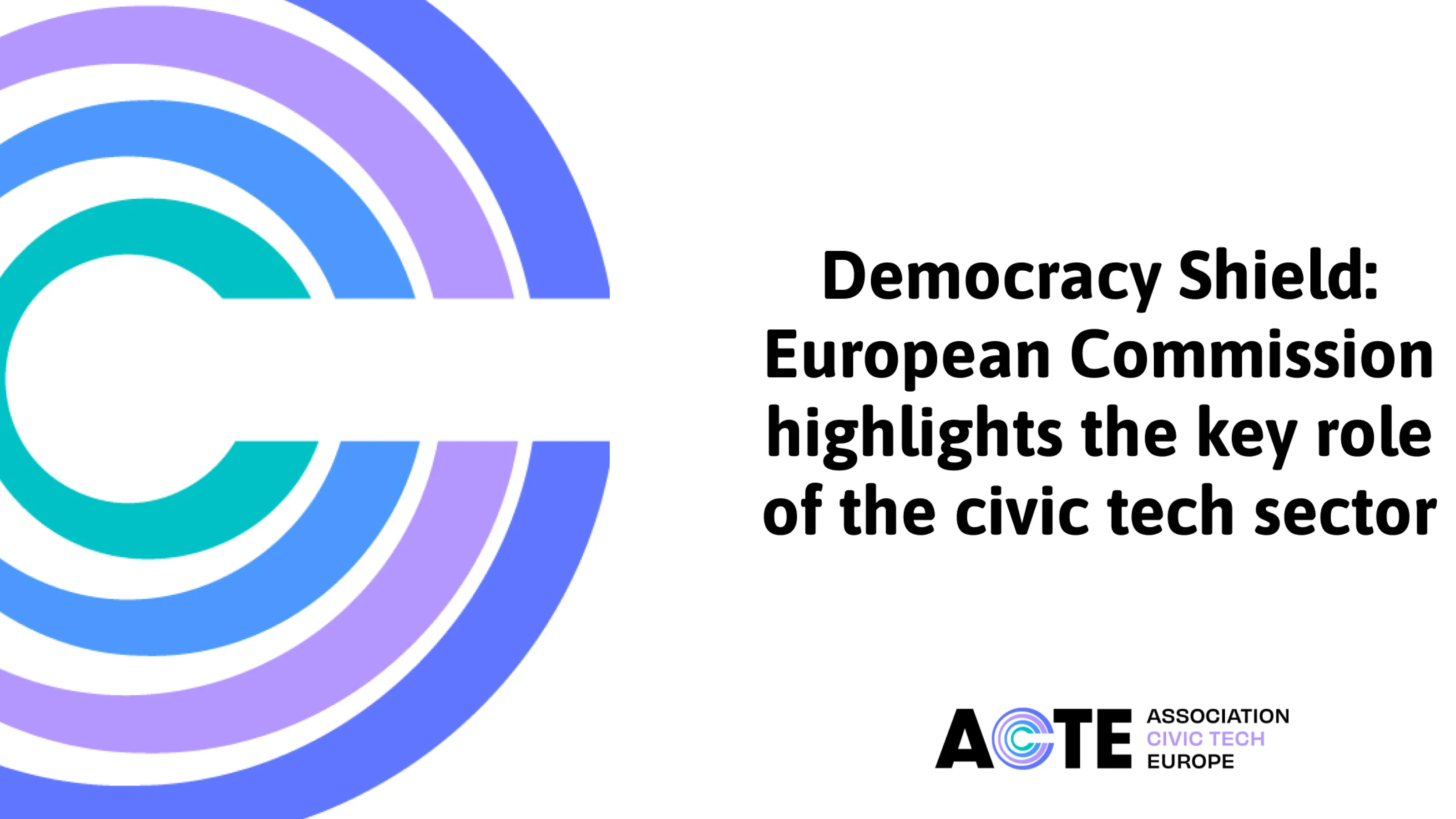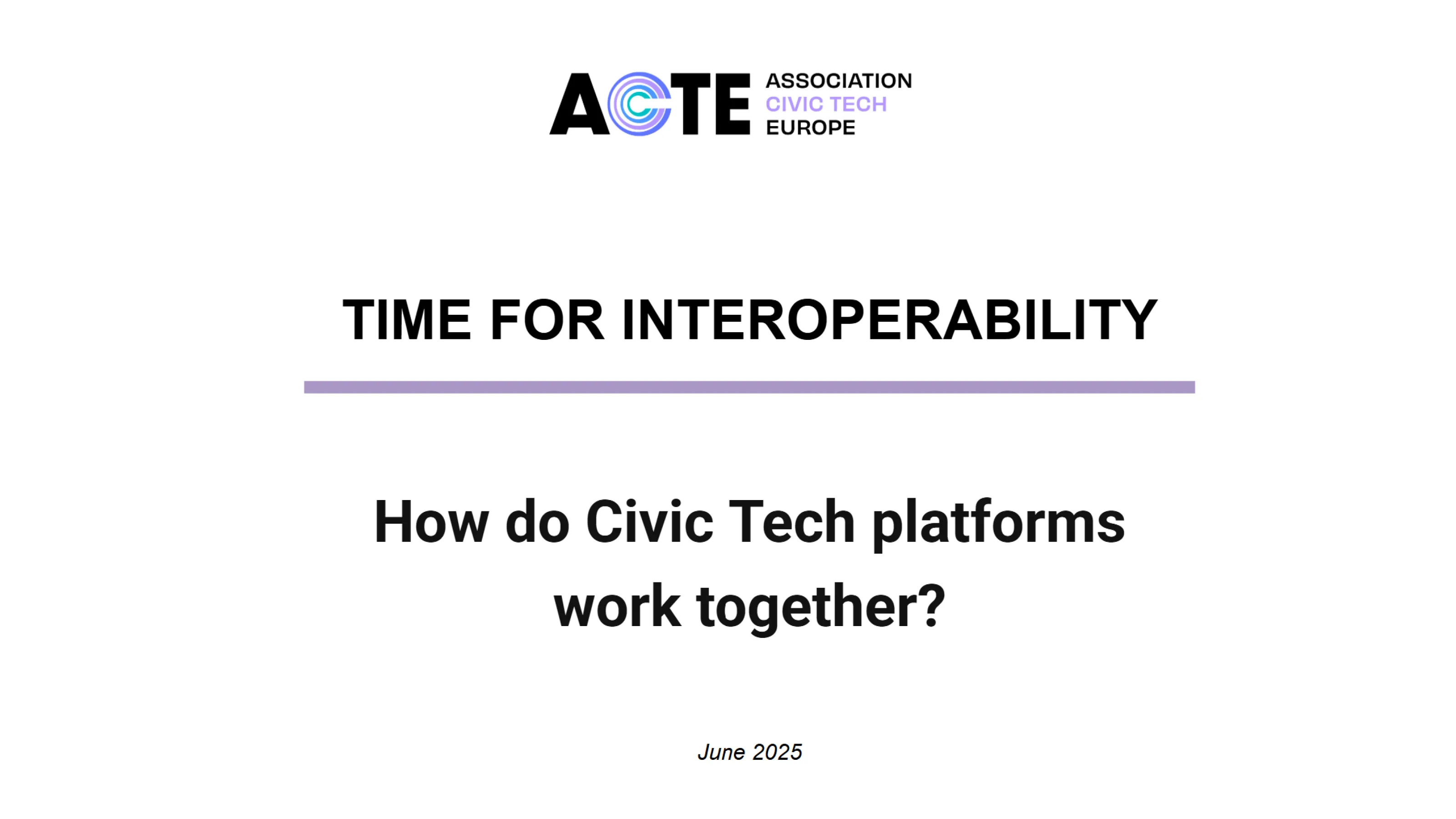The unthinkable war on the doorstep of Europe must not be allowed to fill the empty space left by an unthought: the fragility of our democracies. As the first and last barriers against barbarity, our democracies are straining under pressure at the very heart of our own western nations.
Far from dictatorships and “illiberal democracies”, representative systems of government are suffering from a lack of trust, a representativity crisis, pressures on free speech, difficulties in reaching out across social-political divides… Yet behind this perfect storm lies a much deeper cognitive crisis which significantly weakens public debate and citizen engagement.
At the centre of these tensions lies the largest and most accessible contemporary network of exchange and interaction of all times: the Internet. Fake news, cyber-attacks, brainwashing, harvesting of personal data have all been tackled on various levels by national and European legislators in the past few years. Lest we forget the Cambridge Analytica scandal, Sputnik and RT’s revisionism, pre-Brexit information manipulations, the unstoppable spread of conspiracy theories, filter bubbles and their nefarious consequences on the social fabric…
However, such risks of abuse could be a case of not seeing the wood for the trees. Indeed, the tendency to use more "breaking news" and concentrate on social media's filter bubble and viral fake news or the wild west of the Internet (with its “winner takes all” approach to referencing) reduce the possibility to bring information to citizens which is sufficiently nuanced, neutral and useful to fully grasp a given socio-political topic. Public ways of acquiring information are not fit to bring about, or support, the political consciousness required of our modern citizenry. Democracy needs a new way of organising knowledge, and a new way for citizens to consume news and debate on the Internet: a “public debate Web”.
We call for a Web-based service to give people access to a set of (formal and verified) facts and (informal) opinions on a given political topic, independent from all existing media. Such a service would make a unified database available for the benefit of public debate, with every piece of content labelled and categorised. It would seek to make sense of the immense array of formal and informal contributions, and formulate them through a common typology, such as themes, concerns, solutions, arguments, etc. It would make freely available to anyone, citizen or association, elected representative, or media, an organised and accessible set of ideas, facts and arguments around any given topic.
Such a service is not yet born.
The Web we know - the GAFAM Web - has not been designed along these principles: it operates under a different, essentially profit-seeking, logic. It has even been shown that the Web promotes biased content, particularly conservative. We call for the creation of a set of Web services whose core technology supports the following 5 objectives (more may come later).
1.Better information
The objective is to come up with an information-labelling system which, when producing results for a given query, can also map out the results according to those labels. Such a system would have the ability to highlight key elements in the text (emotional content, scientific fact…), as well as identify any bias or slant, in much the same way a food label tells you about their ingredients and nutritive values. The search algorithm should also be able to map out links between different articles listed in the response, to help readers understand various facets of a complex subject, and clarify any relationships between sources of information.
2.Better contributions
The objective is to redesign user interfaces to foster deliberation and collective decision-making. This requires the implementation of policies in the area of user interfaces which:
- are based on sound ergonomic principles;
- guarantee accessibility and inclusion;
- foster a respect for the nuances and complexities inherent to information;
- facilitates an exchange of views and the coexistence of distinct and complementary perspectives (contrary to social media filter bubbles);
- can quantify the prevalence of opinions to measure adherence to various sides of the argument.
3.Knowledge aggregation
The objective is to categorise and keep-safe any user-generated content in the public sphere in order to bring to an end the digital amnesia which renders most citizen contributions obsolete once they have been harvested and analysed. This requires implementing systematic and automatic open data for all raw and processed data collected during citizen engagement exercises and allowing taking previous work as a starting point (for instance, the outcome of any citizen assembly or convention could be the bedrock on which to build another citizen consultation). Over time, this aggregation of content will enable different perspectives to shed light on various issues (as there should be different layers of reading on Wikipedia: young people’s Wikipedia, elderly people’s wikipedia, that of various cultures, etc., highlighting commonalities and differences).
4.Trust-building
The objective is to build trust in the algorithms underpinning our experiences on the web. This requires encouraging the use of explainable AI (the rules of which are human-curated and therefore intelligible), guaranteeing algorithmic transparency both in terms of their objectives and their effects, allowing choice in using one type of algorithm over another, and guaranteeing one’s intellectual property over their personal data.
5.Better learning
The objective is to enable the emergence of a “competence democracy” by embedding - in the content produced by citizens - the recognition of their competence by peers. This is based on the notion of community-vetting, be that by a school, university or expert, enabling the creation of “democratic CVs” or “citizen passports”. These could serve to identify “amateur experts” and facilitate the emergence of epistemic communities.
These 5 objectives should be the bedrock of a new “digital agora”. Such a project should be a key objective of national and European institutions. We call for the creation of a “Democracy Plan” with the objective of structuring the CivicTech sector to see the emergence of best-in-class organisations supporting citizens in making democratic choices. This sector should work to the establishment of technologies which encourage consultations, co-construction and collective decision.
In the spirit of an “enlightened Internet”, these critical technologies would be a cross-cutting, platform-agnostic digital commons. They would seek to contribute to citizen engagement in all its forms (consultations, surveys, debates, forums, petitions, votes, projects, etc.) and represent a common asset to be protected, for the preservation of the social fabric of our societies. Any platform, be it private, public, third-sector or media-based, should be able to leverage it via open APIs.
To be given the chance to witness the emergence of “democracy unicorns”, this sector has to be supported financially. We call for substantial equity and non-equity investments suitable to the realisation of these ambitions and to one day be able to witness a decentralised, transparent and humanistic “public debate Web”, able to export and defend our value the world over.
Authors
Co-founder, bluenove Co-author de « La démocratie, autrement » (Ed. de l’Observatoire, 2021)
Arno Pons General secretary, Digital New Deal Foundation
Gilles Proriol Founder, Cognito Co-author of « La démocratie, autrement » (Ed. de l’Observatoire, 2021)
Signatories
Clément Mabi Maître de Conférences at the Université de technologie de Compiègne
Pierre Levy Philosopher, sociologist et researcher in information science and communication
Benoît Thieulin Digital entrepreneur, former President of the Conseil National du Numérique
Julie de Pimodan Co-founder, Fluicity
Adrien Duguet President of the Association CivicTech Europe (ACTE)
Benoît Raphael Founder, Flint Media
Chloé Pahud Founder, Civocracy
Fanette Bardin Co-President, Démocratie Ouverte
Louis Daillencourt Director, Novoville
Mathieu Souquière Associate expert with the Fondation Jean Jaurès
Alicia Combaz Co-founder, Make.org
Axel Dauchez Co-founder, Make.org
Florent Barre Co-founder, Qomon
Ned Howey CEO and Co-Founder, Tectonica Digital Campaign Solutions
Jim Fournier CEO and Founder, Tru
Simon Strobel and Julius Oblong Co-Founders, VOTO




